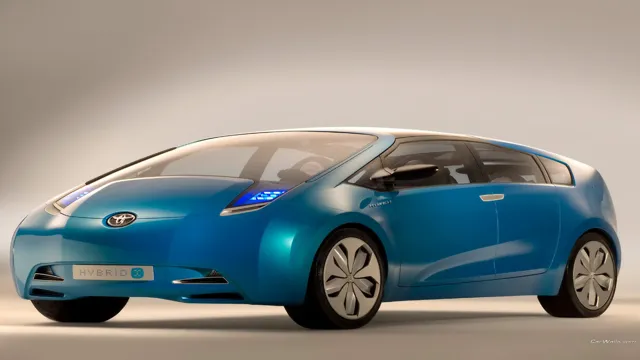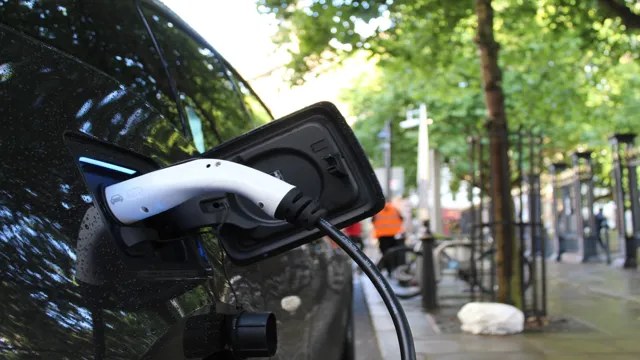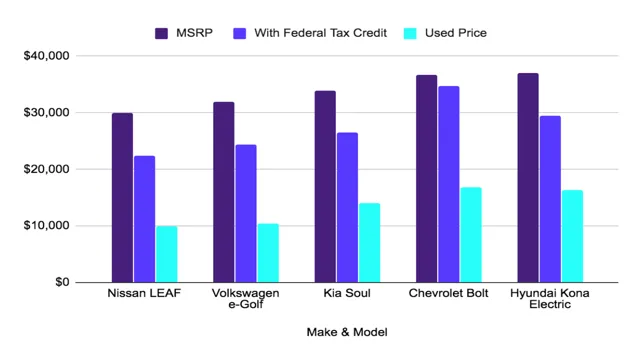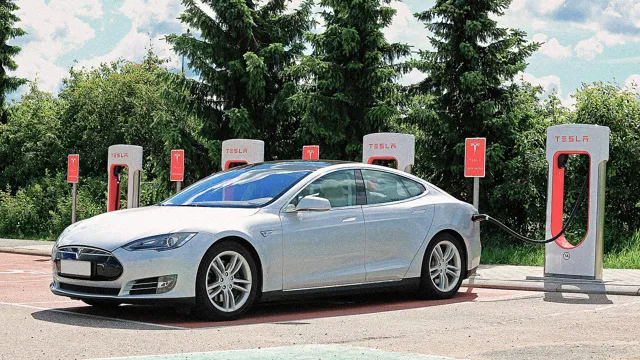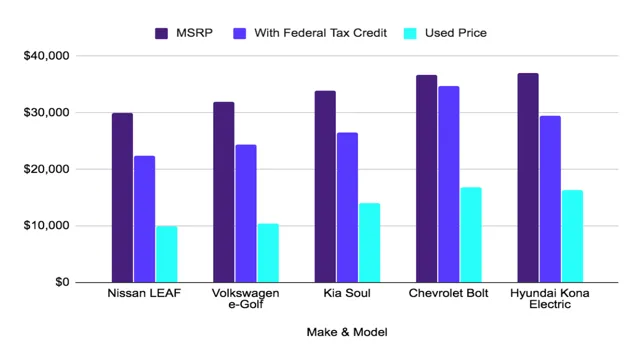Charge up your Savings: Why Electric Cars are the Low-Maintenance Solution of the Future
Electric cars have been gaining popularity recently, and for good reason. They are an eco-friendly alternative to traditional gasoline-powered vehicles and come with a range of benefits, including lower fuel costs and reduced carbon emissions. However, with any new technology comes the question of maintenance.
Is electric car maintenance easier or harder than maintaining a conventional car? Many people assume that maintaining an electric car would be easier due to the absence of an internal combustion engine. After all, electric cars have fewer parts and require less routine maintenance. However, this isn’t necessarily the case.
While electric cars do have fewer moving parts, they still require regular upkeep to ensure optimal performance. Additionally, electric cars are still a relatively new technology, and many mechanics may not yet be familiar with how to maintain them. This can lead to higher repair costs, as specialized knowledge and equipment may be required.
On the other hand, electric cars do have some advantages when it comes to maintenance. For example, electric motors are more efficient than gasoline engines and require less oil changes and tune-ups. Plus, regenerative braking technology means that the brake pads on electric cars last longer than on traditional cars.
Overall, maintaining an electric car may have some unique challenges, but with proper care and maintenance, they can be just as reliable and long-lasting as conventional cars. As electric cars become more mainstream, it’s likely that we’ll see more specialized mechanics and lower repair costs, making them an even more attractive option for eco-conscious drivers.
Maintenance Costs
One of the advantages of electric cars is that they tend to be easier to maintain than their gas-powered counterparts. This is because electric cars have fewer moving parts and require less frequent maintenance. For example, there are no oil changes to worry about since electric motors don’t require oil.
Additionally, the regenerative braking system in an electric car results in less wear and tear on the brake pads, which means that they may last longer than those in a gas car. Of course, electric cars still need regular maintenance like tire rotations, alignments, and brake and suspension checks. However, overall, electric cars have lower maintenance costs than gas-powered vehicles.
So, if you’re looking for a car that’s easier and potentially cheaper to maintain, an electric vehicle might be a good choice for you.
Comparison of costs between electric and gas-powered cars
When it comes to maintenance costs, electric cars have a distinct advantage over their gas-powered counterparts. The lack of a traditional combustion engine means that there are fewer parts to wear down or break, leading to fewer maintenance issues overall. In general, electric cars require less frequent maintenance, with manufacturers typically recommending a tune-up or inspection every 10,000-15,000 miles.
By comparison, gas-powered cars often require more frequent oil changes, air filter replacements, and other upkeep tasks. This can add up over time, with some estimates suggesting that electric car maintenance costs can be up to 50% lower than gas-powered cars over the lifespan of the vehicle. Additionally, electric cars often feature regenerative braking systems, which can help extend the life of brake pads and reduce maintenance costs even further.
Overall, while electric cars may have higher upfront costs, the potential savings in maintenance costs and long-term ownership make them an increasingly attractive option for drivers looking to reduce their environmental impact and save money in the long run.
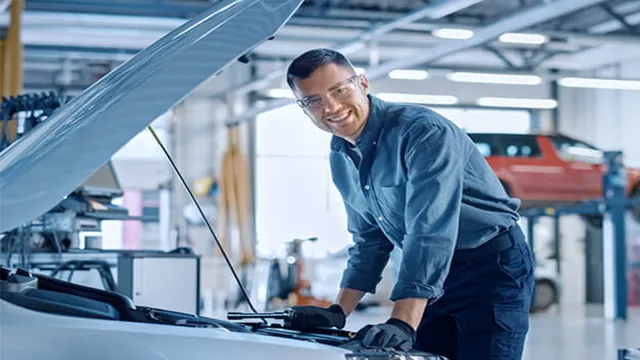
Maintenance Requirements
Electric cars, due to their simpler engine designs, tend to require less maintenance than traditional gas-powered cars. With fewer moving parts and no need for oil changes, spark plugs, or transmission repairs, electric cars can save drivers money and time on routine maintenance. Additionally, electric cars have regenerative braking, which means that they use their own momentum to recharge the battery, reducing the wear and tear on the brake pads and rotors.
However, like all vehicles, electric cars do have some maintenance needs. The battery, for instance, will need to be replaced eventually, and the tires and brakes will still need regular checks and replacements. But overall, in terms of reducing routine maintenance tasks, driving an electric car can be a smart choice.
Details about the maintenance requirements of electric cars
Electric cars are a new and exciting technology that provides many benefits to drivers. One of the main benefits of electric cars is their lower maintenance requirements compared to traditional gas-powered cars. For example, electric cars have no oil to change, no spark plugs to replace, and no timing belts to worry about.
This means that electric car owners can save money on maintenance costs and enjoy a hassle-free ownership experience. Additionally, electric cars have fewer moving parts than gas-powered cars, which means that they are less likely to break down and require repairs. However, electric cars still require regular maintenance, such as tire rotations and brake inspections, to ensure that they are running smoothly and safely.
Overall, electric cars are a great option for drivers who want to save money and reduce their environmental impact while enjoying a low-maintenance ownership experience.
Details about the maintenance requirements of traditional cars
Traditional cars require regular maintenance to ensure they stay in good condition and operate efficiently. One of the most important maintenance requirements is regular oil changes, which help to keep the engine lubricated and prevent wear and tear. In addition, traditional cars need to have their brakes checked and serviced on a regular basis, as well as their tires, which should be rotated periodically to ensure even wear.
Likewise, traditional cars require regular tune-ups, which involve replacing spark plugs, belts, and hoses, as well as checking other vital systems such as the battery, cooling system, and exhaust. Ignoring these maintenance requirements can result in decreased performance and even costly repairs down the road. By staying on top of regular maintenance, traditional car owners can help extend the life of their vehicles and enjoy reliable, safe transportation for years to come.
Long-Term Maintenance
When it comes to maintenance, electric cars have a clear advantage over their gasoline counterparts. Since electric cars do not have traditional combustion engines, there are fewer moving parts, meaning less opportunity for costly and time-consuming repairs. Plus, electric cars don’t need oil changes or other fluid changes as gasoline cars do, helping owners save money in the long run.
And, since electric cars don’t produce exhaust, they don’t require emissions checks, another potential expense saved. However, there are still maintenance tasks to be done on electric cars, such as battery management and updates to the software that controls the car’s systems. But overall, electric cars are easier and cheaper to maintain than traditional gasoline vehicles.
So, if you’re looking for a low-maintenance car for the long-term, an electric car might be the perfect choice for you.
Discussion of long-term maintenance and durability of electric cars
Long-term maintenance is a crucial factor in determining the durability of electric cars. While electric vehicles are often touted for their low maintenance requirements compared to traditional gas-powered cars, it’s essential to consider the long-term impact of battery degradation, system updates, and wear and tear on components. Depending on the make and model, battery replacement can be expensive and may need to be done every five to ten years.
It’s also crucial to consider the availability and cost of replacement parts, as repairs can be costly for electric cars. However, regular maintenance, such as tire rotations and brake pad replacements, can be less frequent in electric vehicles due to regenerative braking systems. In conclusion, while electric cars may require different types of maintenance, it’s important to consider the long-term costs and durability of these vehicles to make an informed decision when purchasing a vehicle.
Discussion of long-term maintenance and durability of traditional cars
When it comes to long-term maintenance of traditional cars, there are a few things that owners should keep in mind. First and foremost, regular maintenance is key to keeping a car running smoothly for years to come. This includes things like changing the oil and filters, checking the brakes and transmission, and ensuring all fluids are topped off.
Additionally, it’s important to address any issues as they arise, rather than putting them off. Ignoring problems can lead to more expensive repairs down the line and potentially shorten the life of the car. It’s also worth noting that the availability of parts can be an issue with older cars, so it’s important to find a reliable mechanic who is knowledgeable about your specific make and model.
With proper care and attention, however, traditional cars can be durable and last for decades. As the saying goes, they don’t make them like they used to.
Conclusion
In conclusion, when it comes to maintaining an electric car, it’s a breeze compared to its gas-guzzling counterparts. With fewer moving parts, less wear and tear, and simpler systems, electric vehicles provide a more straightforward and less expensive maintenance experience. Plus, you can say goodbye to oil changes, spark plugs, and mufflers – making it clear that electric cars not only help the environment but also make life easier for their owners.
So, if you’re looking for a car that requires less time and money spent on maintenance, it’s clear that the electric route is the way to go.”
Answering the question of whether electric cars are easier to maintain
When it comes to long-term maintenance, electric cars are easier to maintain compared to traditional internal combustion engine vehicles. With fewer moving parts, electric vehicles require less frequent maintenance. There is no need for regular oil changes, tune-ups, or replacing spark plugs.
In addition, regenerative braking systems in electric cars result in less wear and tear on the brakes, leading to longer brake pad life. Moreover, electric cars have fewer fluids and do not require as much cooling, resulting in a much simpler cooling system. While electric cars have their own unique maintenance needs, such as battery management and software updates, they require less maintenance overall compared to gas-powered cars.
This not only saves drivers time and money but also makes electric cars more environmentally friendly due to reduced waste and lower use of natural resources. So, if you are looking for a vehicle that requires less maintenance and offers a more sustainable future, then an electric car is definitely worth considering.
FAQs
What is the maintenance cost for an electric car compared to a gas-powered car?
Generally, electric cars have a lower maintenance cost because they have fewer moving parts and require less frequent oil changes and tune-ups.
Are there any specific maintenance tasks that are unique to electric cars?
Yes, electric cars require maintenance of their battery systems, including regular charging and occasional battery replacement.
How often should I have my electric car serviced?
It is recommended to have your electric car serviced at least once a year or every 10,000-15,000 miles, whichever comes first.
Are there any special tools or equipment required to maintain an electric car?
Yes, some maintenance tasks for electric cars require specialized equipment, such as charging stations and diagnostic tools for the battery system. However, many routine maintenance tasks can still be performed by a regular mechanic.
